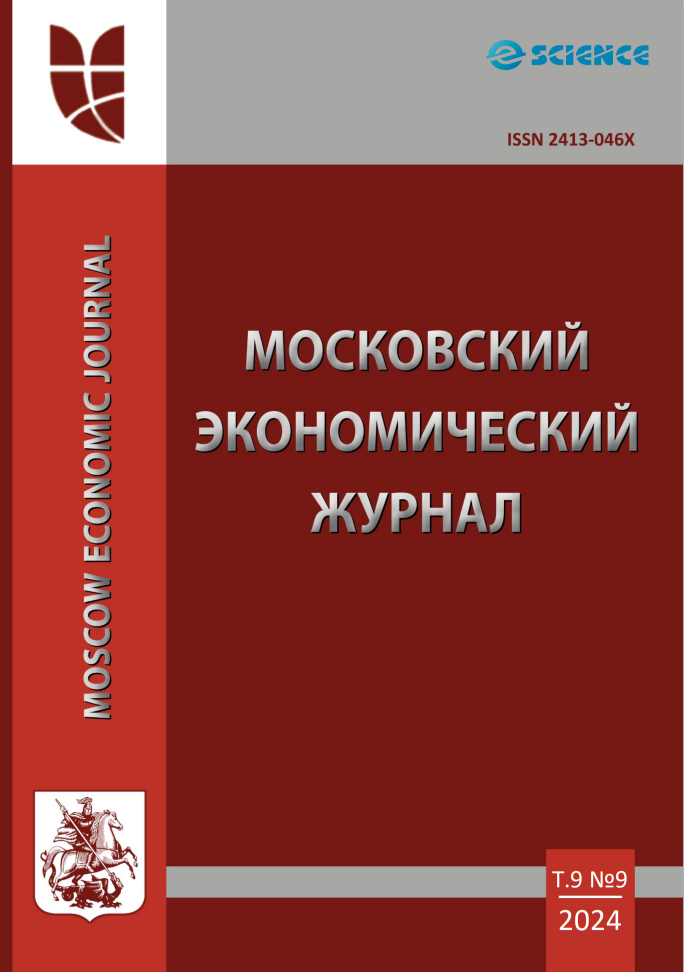UDC 338
The article presents the results of theoretical analysis of the concepts of consulting and educational consulting in particular. Today, the education sector is significantly transformed, new mechanisms and tools for managing educational organizations are being introduced. New types of services are being tested and successfully functioning, partnerships with government agencies and business representatives are being strengthened. Specific and general problems are inherent in each organization providing educational services at any level. Thus, experienced teachers have a huge store of experience and knowledge during their work experience, which is directly acquired by teachers during the educational process. However, the constantly changing requirements of the external environment dictate the need to use innovative methods and forms of teaching in order to meet the spirit of the times and the needs of the labor market. In their practical activities, the teacher constantly solves many complex problems, including the search for an individual approach to each student, closing his requests, establishing a balance between training, education and development, appropriate and competent use of information technology and innovative tools. It is believed that it is necessary to make a number of proposals that can minimize potential problems by using educational consulting tools, the theoretical foundations of which are the subject of this article. The modern domestic education system allows for the implementation of consulting mechanisms in institutions of various levels. In addition, it is believed that educational consulting will soon be widely in demand and used everywhere in Russian educational organizations of all levels.
education system, external consultants, consulting, educational consulting, consulting services, digital transformation
1. Shatalova N.I. Konsul'tirovanie v upravlenii chelovecheskimi resursami. M.: Izd-vo NIC Infra-M, 2019 – 221 s.
2. Steeie F. Consulting for organisational change. — Amherst, MA: University of Massachusetts Press, 1999. – 231s.
3. Greiner L.E., Metzger R.O. Consulting to management. — EnglewoodCliffs,NJ: Prentice Hall, 1983. – 564 s
4. Markhem K. Konsalting menedzhmenta, ili Kak uluchshit' svoy biznes. / K.Markhem. - M.: 2021. — 392 s
5. Vechkanov T.S, Vechkanova G.R. Sovremennaya ekonomicheskaya enciklopediya. /T.S. Vechkanov, G.R. Vechkanova. — SPb.: Lan', 2019. – 879 s.
6. Todika M.V. Tendencii razvitiya rynka konsaltingovyh uslug v RF v usloviyah krizisa / M.V. Todika, V.E. Tibilova // V sbornike: Obschestvo i ekonomika znaniy, upravlenie kapitalami: cifrovaya ekonomika znaniy. Krasnodar, 2022. S. 452-457.
7. Pozdeeva E.A., Svincov I.V. Povyshenie effektivnosti i kachestva konsul'tacionnyh uslug po voprosam upravleniya / V sbornike: Aktual'nye problemy razvitiya sfery uslug. Sankt-Peterburg. - 2022. - S. 88- 93.
8. Pesockaya E.V., Selyutina L.G., Slinkov A.M., Ivanova M.O. Upravlencheskiy konsalting v sisteme nepreryvnogo professional'nogo obrazovaniya// Nauchnyy rezul'tat. Tehnologii biznesa i servisa. 2021. T. 7. № 3. S. 84-95.
9. Edersheym E.H. Marvin Bauer, osnovatel' McKinsey & Company. Strategiya, liderstvo, sozdanie upravlencheskogo konsaltinga. SPb.: Izd-vo «Al'pina Pablisher», 2020. - 278 s.
10. Zhuravlev A.E. Konsalting kak instrument povysheniya investicionnoy privlekatel'nosti franchayzinga: avtoreferat dis. ... kandidata ekonomicheskih nauk: 08.00.05 / S.-Peterb. gos. ekon. un-t. - SanktPeterburg, 2016. - 18 s.
11. Häyrinen-Alestalo, M., Peltola, U. The Problem of a Market-oriented University // Higher Education. 2019. № 52. P. 251–281 DOI: https://doi.org/10.1007/s10734-004-2749-1
12. Sahanskiy N. B. Rol' i mesto konsul'tanta v obrazovatel'nom processe // Upravlenie obrazovaniem: teoriya i praktika. 2021. № 1 (17). S. 79–98.
13. Lapekina, N.N. Rol' i znachenie sfery obrazovatel'nyh uslug na sovremennom etape razvitiya gosudarstva / N.N. Lapekina // Problemy i perspektivy razvitiya obrazovaniya v Rossii. – 2021. - №8. – S. 344-348











